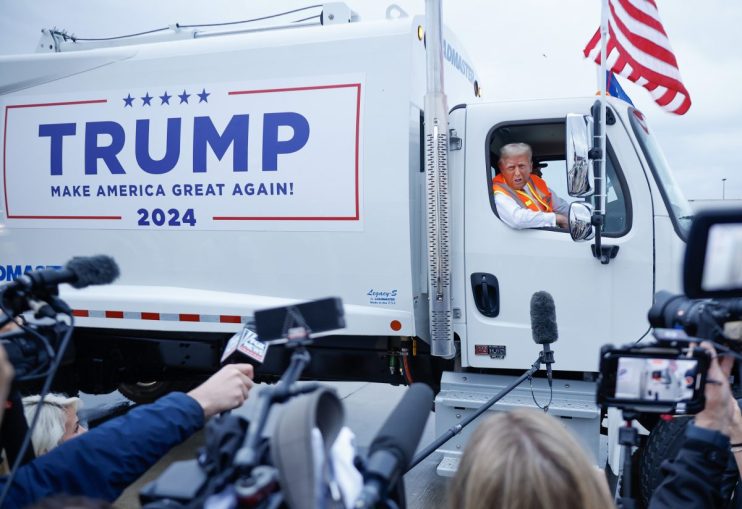Why Donald Trump’s love affair with tariffs will only end badly

There’s one word which is top of mind for economic policymakers around the world: tariffs.
No prize for guessing why. Donald Trump has repeatedly claimed that protectionism is a way to make America great again, no matter the cost to the global economy or the American consumer.
He has threatened to impose a blanket tariff of up to 20 per cent on all foreign imports, rising to 60 per cent for imports from China.
A lot of ink has been spilt trying to work out what impact this will have on the global economy. To cut a long story short, nobody knows exactly what will happen – but it is not going to be good.
Back of the envelope calculations from the International Monetary Fund (which means it’s a good envelope) suggests that a trade war prompted by Trump’s tariffs could knock the equivalent of the French and German economies off global GDP.
The appointment of Scott Bessant as Treasury Secretary has soothed market fears for now, but analysts at Capital Economics said it was unlikely to signal a completely new direction in trade policy.
“This is Trump’s world, while the rest of us, including his cabinet, just live in it. We still expect Trump to move relatively quickly next year to impose tariffs,” Paul Ashworth, chief North America economist at the consultancy, said.
So why does Trump appear so determined to impose tariffs?
On one level we know why. Trump wants to think of himself as a master deal-maker. The threat of tariffs is therefore just a bargaining chip to bring partners to the negotiating table.
We know what he wants too. He wants to cajole European economies into meeting their NATO spending commitments and to contain China’s growing influence.
But Trump also has a completely unorthodox view of trade in which there are always winners and losers, a view – known as mercantilism – that went out of fashion about 300 years ago.
Mercantilists in the early modern period essentially believed that exports should be maximised, forcefully if necessary, and imports minimised through the use of tariffs. This would help to maximise an economy’s share of global wealth, which was assumed to be relatively fixed.
Unsurprisingly, this view of the economy was a contributing factor to the period of intense European military competition and colonial expansion, as rival economies sought new markets for their exports.
Clearly there are differences between Trump’s view and early modern European economists, but fundamentally he does think that trade is zero-sum. For him, the fact that the US has a massive trade deficit with China and Germany is a sign that it is ‘losing’ trade.
As Kallum Pickering, chief economist at Peel Hunt, explained: “The major problem with Trump’s penchant for tariffs is his apparent inclination to view trade deficits like losses on a corporate balance sheet.”
“This is misguided. Even though all deficits and surpluses must balance, global trade is not a zero-sum game,” he added.
In fact it is the opposite.
Trade enables the more efficient use of economic resources by allowing countries to specialise in areas in which they have a comparative advantage. This, in theory, should provide benefits to all participating economies.
Put another way, it’s hard to see how American consumers are ‘losing’ by importing lots of cheap goods from China.
Aside from the economics, proponents of protectionism argue that there’s a case to impose tariffs on the basis of national security interests, but it’s not clear this argument stacks up.
When mercantilism first went out of fashion in the late 18th century it was due to a combination of economic logic and political optimism. The hope was that increasing trade between nations around the world would result in perpetual peace.
As Immanuel Kant wrote in 1795, “the spirit of commerce sooner or later takes hold of every people, and it cannot exist side by side with war… Thus states find themselves compelled to promote the noble cause of peace, though not exactly from motives of morality.”
The modern version of Kant’s argument is the McDonald’s peace theory. Until Putin’s invasion of Georgia in 2008, no two countries with a McDonald’s had ever gone to war with each other.
The experience of the last few years has clearly shown that the most naive version of this argument is wrong. Trade does not necessarily promote peace.
But neither does that mean that the status quo ante will be any better. It is hard to see how a trade war will help to ease global tensions.
Trump’s economic policies will definitely be bad for the global economy, and there’s good reason to think they will pose a threat to global security too.